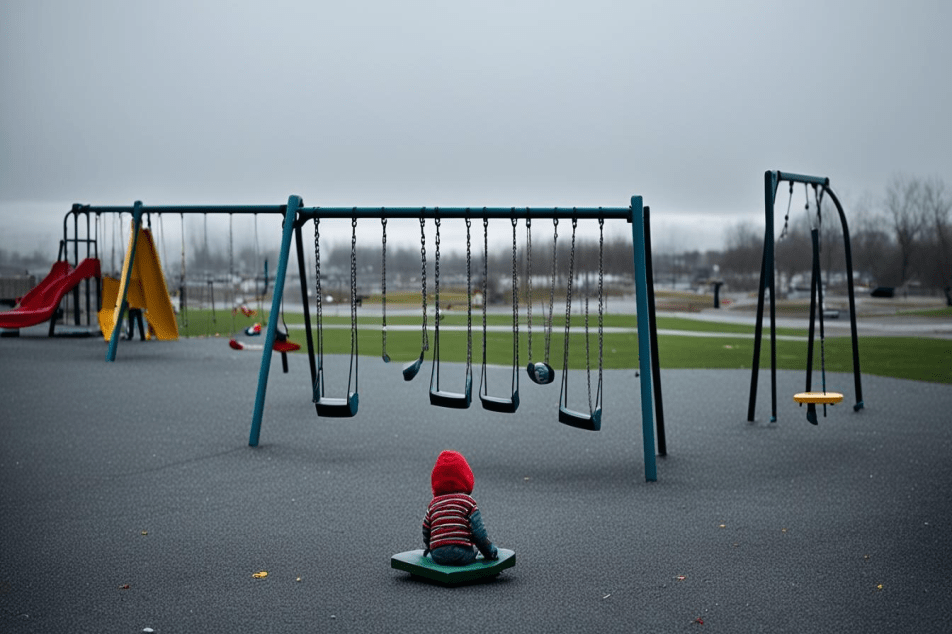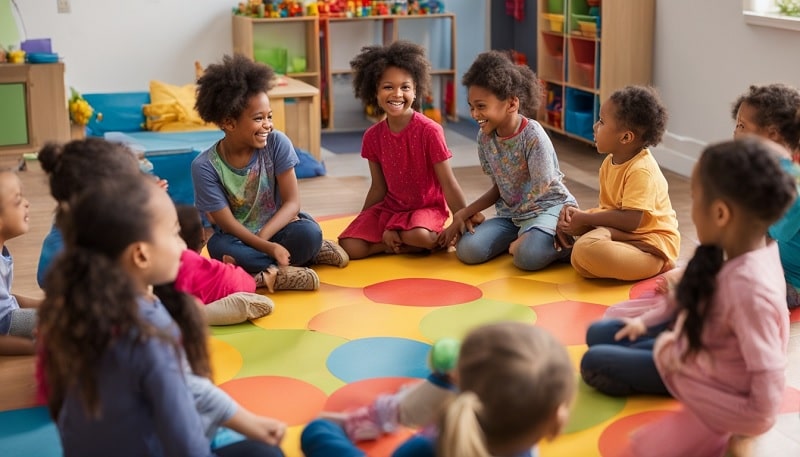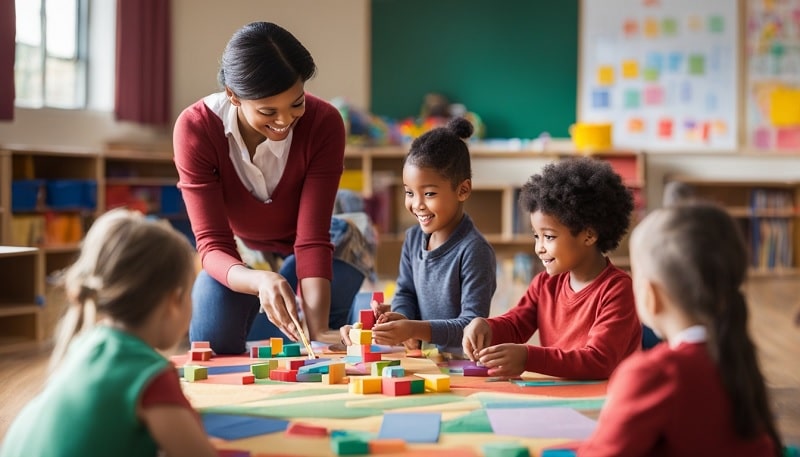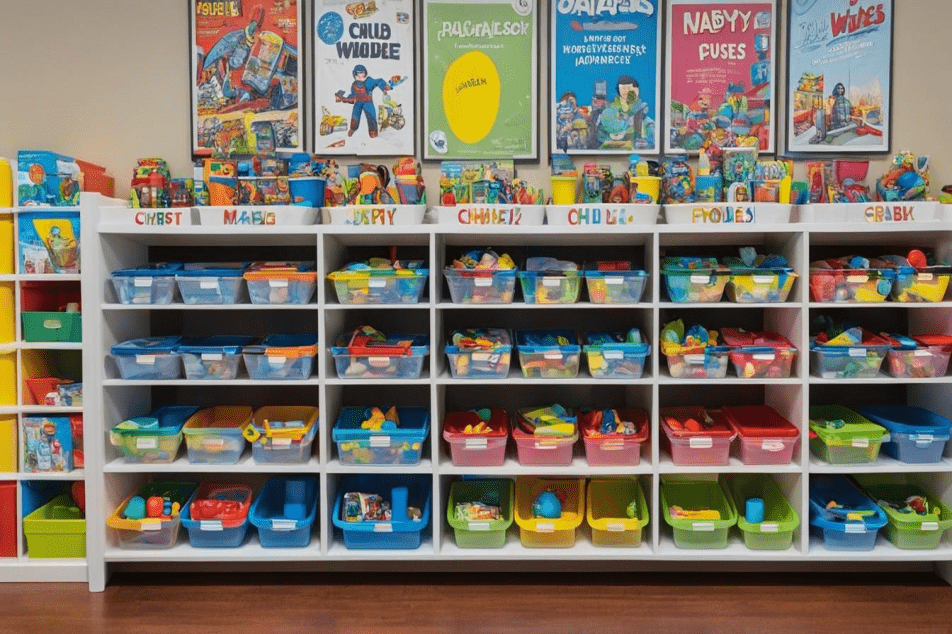
Even though classrooms and playgrounds seem full of life, many young kids feel alone. This early childhood loneliness is a big problem that we've been ignoring. But we can't overlook it anymore, as it affects children deeply, often without any clear signs.
Even when kids have people who care for them, they might still feel lonely. This loneliness comes from deeper issues, like how well everyone gets along and understands each other. Knowing how these emotional bonds work is key for those who want to help. It requires effort from everyone involved - mothers, teachers, and other kids too.
Now, those who care for young children are starting to see how important this issue is. They're finding new ways to help, aiming to make early childhood a time of joy and connection. By doing so, we hope to prevent loneliness and support children's growth in the best way possible.
The Hidden Struggle: Early Childhood Loneliness
"Comprehending the loneliness experienced by young children requires a careful examination of their emotions and living environment. The profound influence of early childhood loneliness on a child's development and well-being cannot be overstated, especially when coupled with the looming crisis in child care. These two perils present significant challenges that our children are currently confronting."
Understanding the Internal Experience of Loneliness in Young Children
Loneliness in kids is not just about being alone. It's about feeling sad and left out. This feeling often comes from not connecting with others, causing deep sadness.
Case Studies: The Emotional Landscape of Lonely Preschoolers
Many young children feel lonely, showing it by being sad, tired, or avoiding playing with others. This is common in kids without close friends or those who often change schools or homes.
The Role of Family Dynamics and Environmental Factors
Family issues like parental separation or lots of arguments add to childhood loneliness. Also, big changes like moving or changing schools can make these feelings worse.
Loneliness in Early Childhood Education: it's more common than you think

Loneliness isn't just for teenagers and adults. It's also found in young kids, especially in early childhood education. If we overlook this, it can hurt how they grow emotionally and socially. It's crucial to help kids feel good emotionally from a young age.
Research shows that preschoolers often feel alone more than we realized. This isolation can lead to negative results. To help, we need good ways to make sure kids in preschool make friends. This can make their emotional and social development much healthier.
How to combat early childhood loneliness in your daycare center:
- Supporting Children's Emotional Well-Being: It's important to understand and react to how preschoolers feel. A caring place that meets their emotional needs can lessen feelings of being alone.
- Promoting Social Connections in Preschool: Programs that encourage kids to interact and make friends can include everyone in a friendly circle.
- Recognizing Signs of Loneliness: Training teachers to notice when a child feels lonely can lead to faster help.
Recognizing loneliness as a critical concern for children's present and future well-being is imperative. Developing strategies to foster friendships and provide support within preschool settings is pivotal in combatting loneliness. This significant undertaking not only enhances young children's learning experiences but also becomes an essential requirement for establishing and operating an effective child care center.
By tackling this problem directly, we do more than help one child. We make our schools and communities stronger and more supportive. This prepares kids to face life's social and emotional challenges better as they grow up.
Addressing Loneliness in Preschool: Why Early Intervention Matters

Preschool is where kids first learn to interact with others. It's at this early stage that addressing loneliness by making classrooms inclusive and focusing on social skills through play can make a huge difference. Tackling loneliness early can boost a child's confidence and set them up for emotional health later on.
Designing Inclusive Classroom Environments to Combat Loneliness
Making classrooms inclusive is key to fighting early childhood loneliness. An environment where every child feels welcome and important helps prevent feelings of being left out.
How to make your classrooms more inclusive and fight early childhood loneliness:
- Make changes in how classrooms are arranged to spur interactions.
- Introduce group activities that foster teamwork and learning together.
- Use diverse tools, supplies and resources so all kids can see themselves reflected.
Strategies for Teachers to Identify and Support Lonely Children
Teachers are vital in spotting and helping lonely children in preschool. They're usually the first to see if a child starts to pull away.
To support these kids, teachers can:
- Attend training to recognize signs of loneliness and withdrawal.
- Keep open conversations with kids, so they feel safe to share feelings.
- Spend one-on-one time with those showing loneliness, making them feel included and cared for.
Developing Social Skills Through Play and Peer Interaction
Playing is a core way to build social skills. It allows children a fun way to communicate and bond with others.
Important play activities are:
- Guided play that teaches sharing and taking turns.
- Role-plays to understand different views.
- Group games that boost teamwork and problem-solving together.
With focused efforts, preschools can be warm places that address loneliness and lay the social groundwork for kids' later success both in school and in life.
Lifetime Impact: Effects of Loneliness on Child Development

The effects of loneliness on child development are significant, stretching from early years into adulthood. This issue shows that early childhood loneliness harms not just present emotional health but also future well-being.
Social isolation in early childhood leaves a lasting mark on a child's growth. It affects many important parts of life:
- Psychological Development: Constant loneliness can increase the chance of depression and anxiety in teens.
- Social Skills: Lonely children may find it hard to make and keep friends, affecting how they get along with others.
- Cognitive Abilities: Loneliness is linked to lower thinking skills, especially in complex thought and focus.
- Physical Health: Studies show loneliness might hurt our bodies, making it easier to get sick.
It's crucial to deal with these issues early. Quick help and a caring environment can change the path ahead. Kids can then grow strong in their social and emotional skills. Knowing how loneliness affects child growth helps us support a better future for all children.
Childhood Loneliness Statistics: A Growing Concern

Childhood loneliness is an urgent issue that needs immediate attention. It's not just a phase, but a significant problem for young kids. This loneliness isn't just about the present. It tells us something important about a child's future mental health.
Recent Trends in Early Childhood Loneliness
Loneliness in young kids is on the rise due to many reasons like social changes and tech use. It's critical to help kids make friends in preschool since these early years are crucial. Good social skills learned now can make a big difference in their future.
There's a shift towards digital communication, which makes real friendships harder to develop. We need new ways to combat loneliness and help kids form true connections.
Correlating Early Loneliness with Long-term Mental Health Issues
Studies show that loneliness in kids can lead to serious mental health problems later. Early isolation is a warning sign that we can't ignore. Helping kids now can protect their mental health as they grow.
This means creating supportive communities for children is essential. By doing so, we're not just helping them today. We're ensuring they have a healthier future.
How can we as a society take meaningful steps to address the pervasive issue of early childhood loneliness and ensure that young children receive the support and connection they need to thrive?








